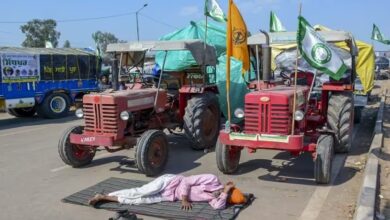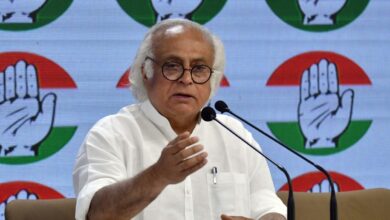The guardian of India’s first encounter with democracy
The first election commissioner was selected to manage and supervise the difficult process of holding the first-ever elections in independent India. Sukumar Sen was an ICS officer and the chief secretary of West Bengal at the time. The initial idea was to have the first elections in 1950. Unfortunately, due to a lack of proper laws, a census, an electoral register, and the delineation of seats, it was unable to be implemented for over two years.

Under Sen’s direction, the Election Commission of India (ECI) overcame all obstacles, including a vast electoral base of 17.2 crore people, a dearth of political experience, and difficult terrain. India was on its way to writing a golden chapter in its history, and the scene was prepared. However, other nations remained unconvinced.
Suresh
The exercise started in the biggest democracy amid skepticism. People from all walks of life used their right to vote, defying all preconceived assumptions, and the election concluded in a constructive way. After making multiple trips around the nation during the elections, Chester Bowles, the US ambassador to India from October 1951 to March 1953, wrote in his report on the enthusiasm among voters. He claimed to have seen lengthy lines at the voting places.
“I have seen women break with tradition and cast their first ballots; it’s reported that more women than males did so.I’ve seen people waiting their time to decide their country’s future—Muslims, Christians, Buddhists, Jains, and Hindus, wealthy landowners and peasants, laborers in shorts and officials dressed in western clothes,” he remarked.
In his book “Every Vote Counts: The story of India’s elections,” former chief election commissioner Navin Chawla said that the choice to select Sen was a very “sound one” and made reference to the smooth conclusion of the first Lok Sabha elections.
Suresh
“At the time, there were many doubters who believed that India’s democratic experiment would fail, thus it was undoubtedly about the audacity of the democratic process. The current colonials were among them, unsurprisingly, and they held the view that the Raj was responsible for keeping India together in spite of its many fissiparous inclinations. However, their predictions of doom were to be proven false. Sukumar Sen was a wise choice to be the first chief election commissioner by Prime Minister Jawaharlal Nehru, the author argued.
Sen is sometimes called the “unsung hero of Indian democracy” for his efforts to fortify the democratic systems in his homeland. Many nations contacted India after the general elections of 1951–1952 in an attempt to learn more about its remarkable accomplishment.
Bowles had a “change of mind,” according to the ECI pamphlet “Leap of Faith: Journey of Indian Elections.”
A few months before to the general elections, liberal thinker and diplomat Bowles came in India. He felt a kind dictatorship, similar to Kemal Ataturk’s in Turkey, would be the greatest option for Asian nations.”Our pessimistic, and somewhat arrogant assumption that democracy is practical only for developed and educated people” needed to be revised, according to Bowles. It said, “He modified his belief that Asia need many Ataturks to lead the region toward democracy.
Sen was proposed to lead the international committee tasked with organizing elections in Sudan after the election’s triumphant conclusion. He organized the elections for more than a year while he was overseas. Sudan, a former British colony, had tremendous success with its elections, which were held using universal adult suffrage similar to that of India.
Sen’s involvement is acknowledged by author-duo Vipul Maheshwari According to Anil Maheshwari’s book, “The Power of the Ballot: Travail and Triumph in the Elections,” he was requested to organize the first elections in Sudan when his achievement was acknowledged on a global scale. With the second Indian general election approaching, there’s a need for all political parties to keep Sen. in mind.
Sen received the Padma Awards, the third-highest civilian honor, in recognition of his service.







